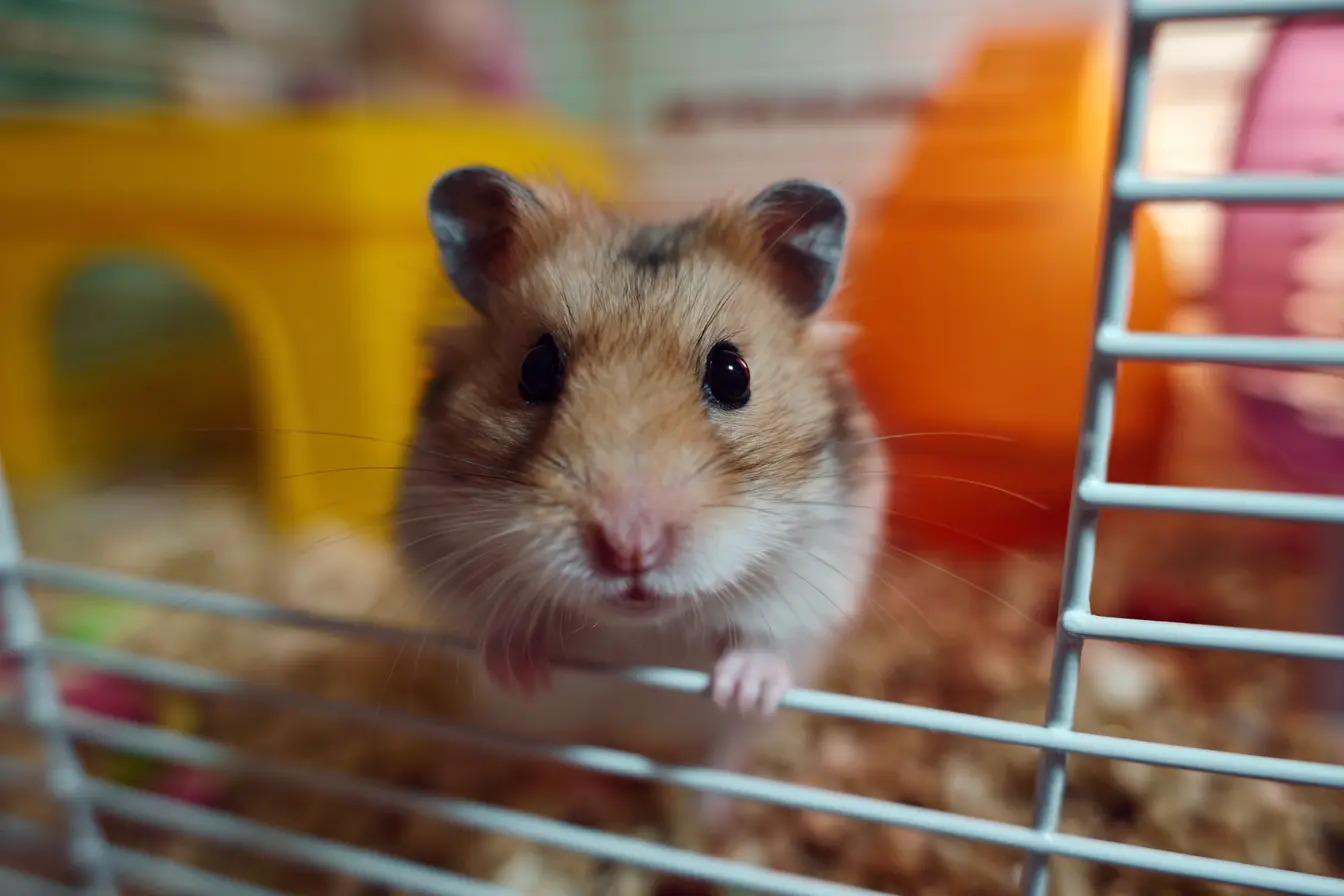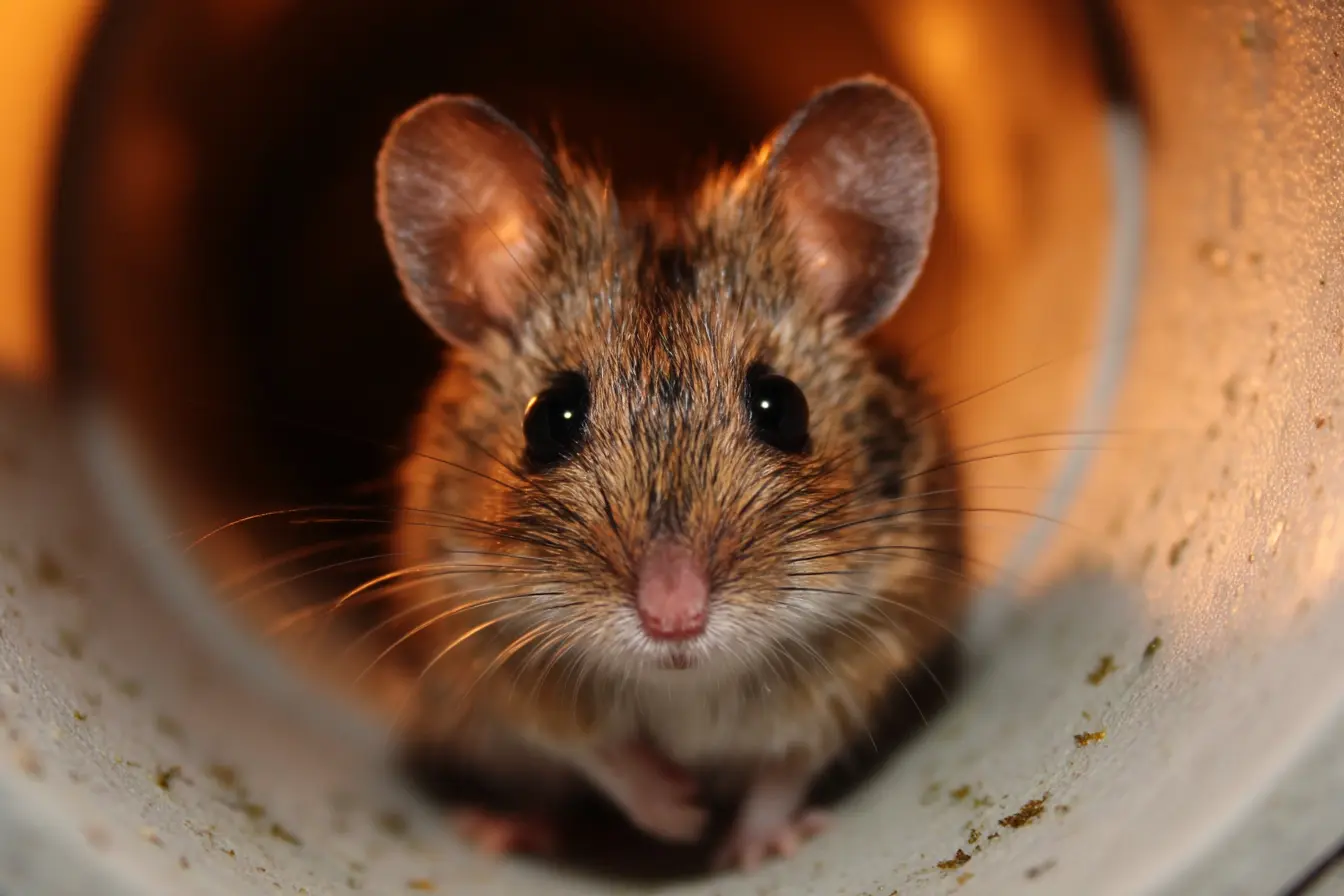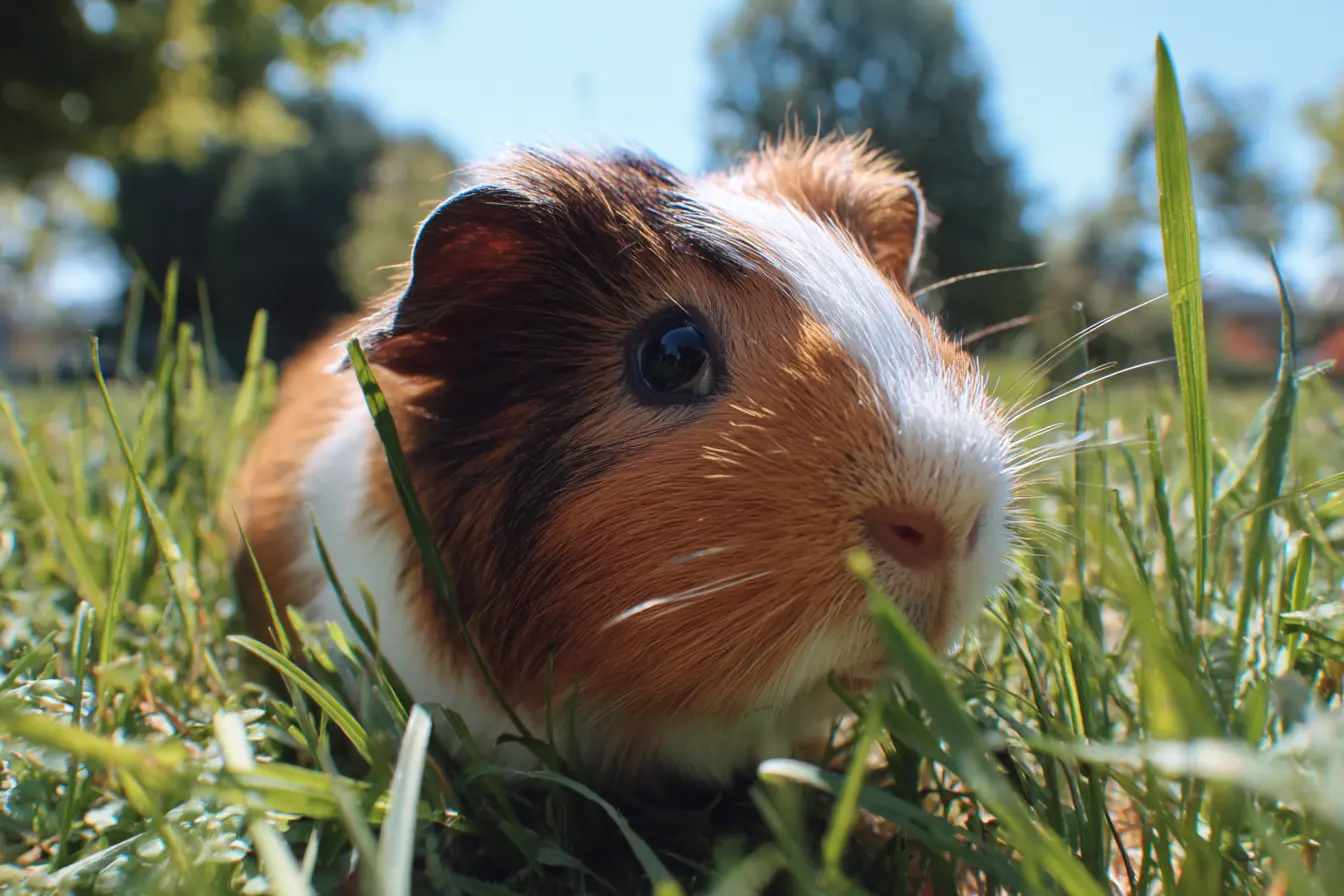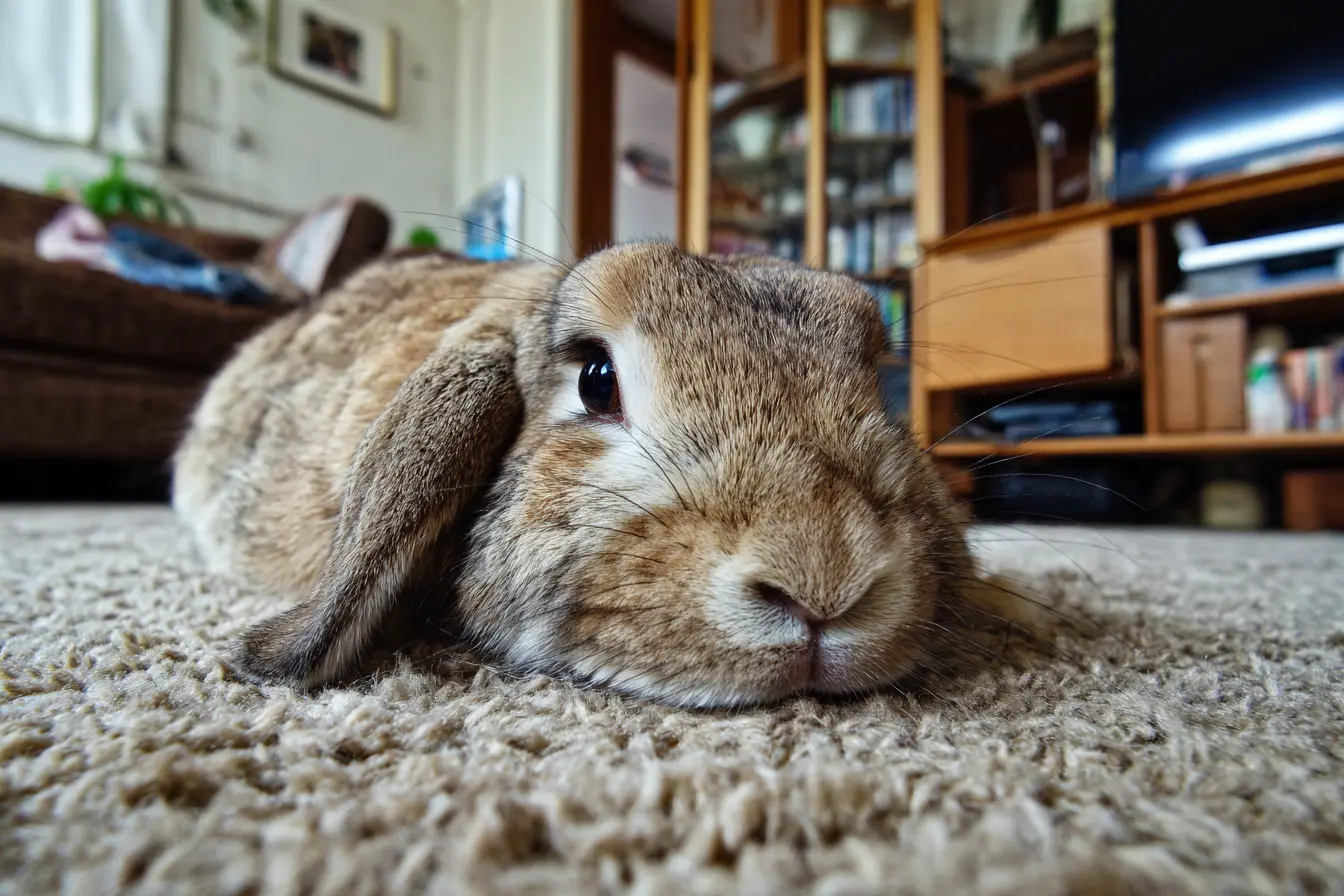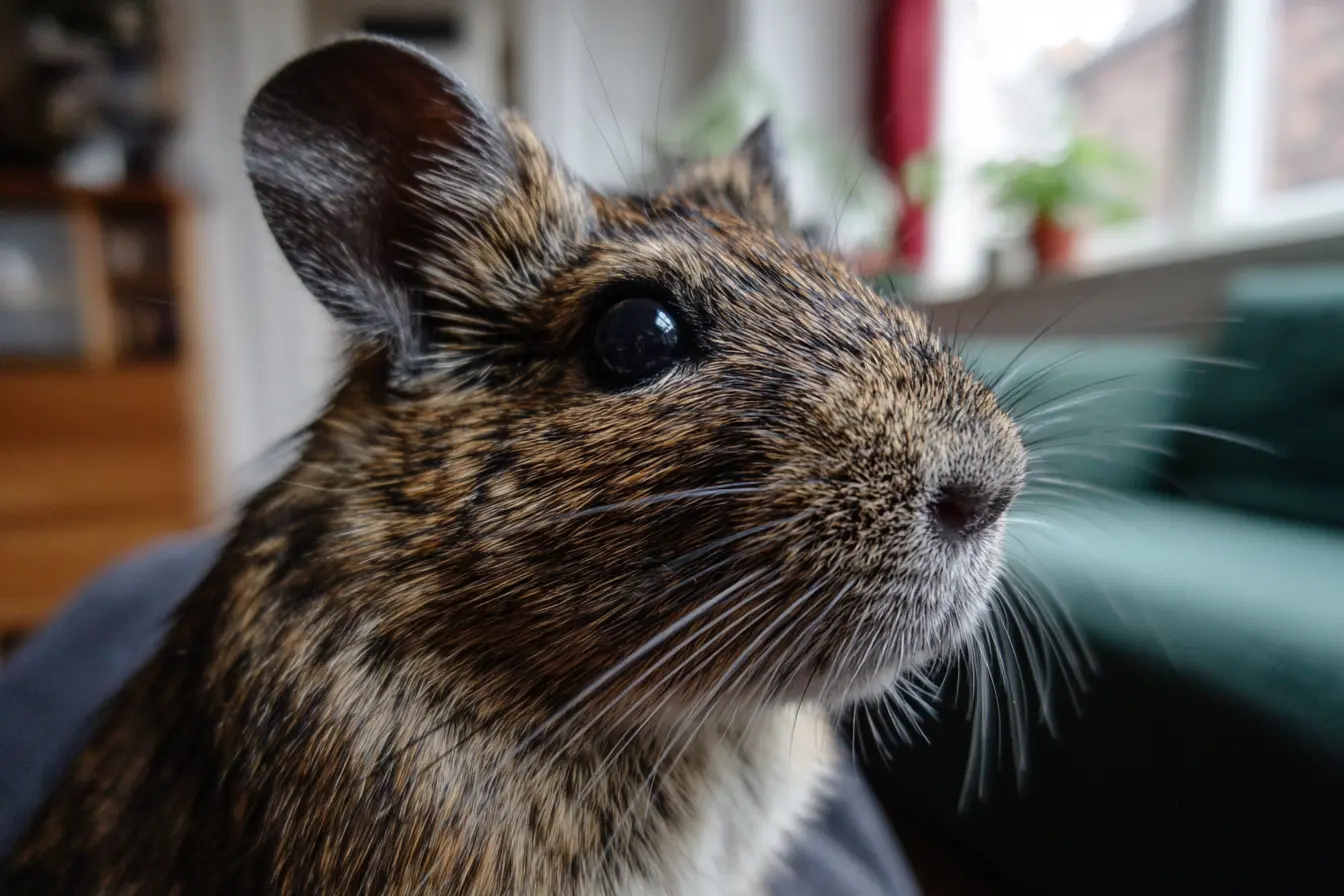
The Top 25 Degu Care Questions Answered by UK Experts
Owning degus can be incredibly rewarding, but it also comes with unique challenges. These intelligent and social rodents require specific care to thrive. To help you understand the essentials, we've compiled and answered the top 25 questions UK exotic pet owners often ask about degus. Whether you're new to degus or looking to refine your care routine, this guide covers all the critical aspects of their wellbeing.
Diet and Nutrition
1. What should I feed my degus?
A healthy degu diet consists mainly of high-fibre hay, such as Timothy or meadow hay, alongside a small portion of degu-specific pellets and a few safe leafy greens. Avoid sugary or starchy foods.
2. Can degus eat fruit?
No. Degus are highly prone to diabetes, and fruit contains too much sugar. Stick to vegetables and occasional herbs as treats.
3. How often should I feed my degus?
Hay should be available at all times. Offer pellets once daily (around a tablespoon per degu), and vegetables 3–4 times a week in small portions.
Health Care
4. Do degus need vaccinations?
No, degus do not require any vaccinations. Instead, focus on preventative care, a proper diet, and regular check-ups with an exotic vet.
5. How do I know if my degu is unwell?
Look for signs like weight loss, lethargy, changes in appetite, overgrown teeth, watery eyes, or laboured breathing. Any sudden changes should prompt a vet visit.
6. Do degus need regular vet check-ups?
Yes. An annual check-up with an exotic vet is recommended to monitor their teeth, weight, and general health.
Housing and Environment
7. What kind of cage do degus need?
Degus require a large, multi-level cage made from metal or glass with solid floors. It should measure at least 100 cm x 50 cm x 100 cm for a pair, with space for climbing, digging, and hiding.
8. What bedding is best for degus?
Use paper-based bedding or kiln-dried aspen shavings. Avoid cedar or pine as these can cause respiratory issues.
9. How often should I clean the cage?
Spot clean daily, especially toilet areas, and do a full clean weekly. Wash food dishes and water bottles regularly.
Behaviour and Socialisation
10. Can degus live alone?
No. Degus are highly social and must be kept in at least same-sex pairs. A solitary degu can become stressed or depressed.
11. How do I introduce new degus?
Introduce them slowly using split cages and scent-swapping over several days or weeks. Monitor for signs of aggression and always supervise early interactions.
12. Are degus good with children?
Degus can be good family pets, but they are delicate and best suited to older children who understand gentle handling and responsibility.
13. How can I bond with my degus?
Spend time near their cage daily, talk softly, offer treats from your hand, and let them climb on you once they are comfortable. Patience is key.
Grooming and Handling
14. Do degus need baths?
Yes, but only dust baths using chinchilla sand 2–3 times per week. Never give them water baths as it can harm their health.
15. How do I safely handle a degu?
Scoop them gently with both hands from underneath. Never grab them from above or by the tail, as this can injure them.
16. Do degus need grooming?
Degus groom themselves, so no brushing is required. Just ensure dust baths are offered regularly.
Enrichment and Mental Health
17. How do I keep my degus entertained?
Offer tunnels, climbing structures, chew toys, puzzle feeders, and time outside the cage in a safe play area. Rotate toys to keep things fresh.
18. Can I let my degus roam outside the cage?
Yes, in a degu-proofed space. Block gaps, remove wires and toxic items, and supervise them at all times.
19. Do degus play with each other?
Absolutely. They wrestle, chase, and groom one another. This social interaction is essential for their mental wellbeing.
Lifespan and Breeding
20. How long do degus live?
Degus typically live 5–8 years in captivity with good care, though some live longer.
21. Should I let my degus breed?
Breeding degus is not recommended for beginners. It’s complex and can lead to aggression, health issues, and overpopulation.
General Care and Concerns
22. Can degus be litter trained?
Some owners have success placing sand or litter trays in common toilet spots. While not perfect, they can learn to use them regularly.
23. Can degus recognise their owners?
Yes. With regular interaction, degus learn to recognise voices, routines, and even individual humans.
24. Are degus noisy?
Degus are vocal and make a variety of squeaks, chirps, and chatters. Most owners find the sounds endearing and not overly loud.
25. Can I keep degus and other rodents together?
No. Degus should only be housed with other degus. Mixing species can lead to stress, injury, or illness.
By understanding and addressing these common questions, you can give your degus the best possible care. A well-informed owner makes for a confident, happy, and healthy degu household.
Vets near you
Speciality vets
- Aquatics vet specialists
- Birds vet specialists
- Camelids vet specialists
- Cats vet specialists
- Cattle vet specialists
- Deer vet specialists
- Dogs vet specialists
- Equines vet specialists
- Exotic vet specialists
- Goats vet specialists
- Pigs vet specialists
- Poultry vet specialists
- Sheep vet specialists
- Small Mammals vet specialists
- Wild vet specialists
Vet facilities
- Accessible by public transport
- Blood testing
- Car park nearby
- Client car park
- Dentistry
- Diagnostic imaging
- Disabled public access
- Flea and worm treatments
- Microchipping
- Mobile services
- Neutering
- Open at weekends
- Out-of-hours service
- Referral interests
- Referrals only
- Street parking outside
- Toilets available
- Vaccinations
